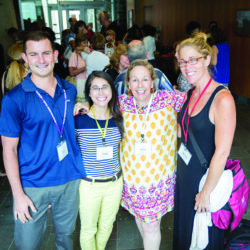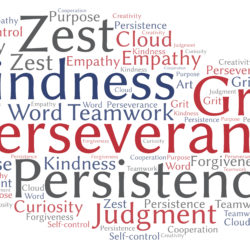By Mark H. Sklarow, CEO, Independent Educational Consultants Association
It has been wonderful connecting with so many of you this spring. Whether at the Chicago conference, the symposium, at affiliated conferences and outreach events, or virtually, it is always a highlight to hear from you about your successes and challenges. Now as our 2018–19 membership year comes to a close, I wanted to summarize this extraordinary year.
Recognition of IECA for Ethical Educational Consulting
Just a few hours after the admission scandal story hit the news, we were advising members, posting statements on social media, distributing news releases, and prioritizing the media requests that came pouring in. We believe IECA was mentioned in hundreds of major newspapers, websites, television, and radio stories. We worked to turn the story away from the criminal actions of a few into one focused on the value and need for an independent educational consultant, and IECA’s 43-year history of being the ‘gold standard’ in the profession. Indeed, by day four, this focus on ethical consulting was the primary story being reported. Now as some state governments look to try and legislate our industry, the need to belong to an association is essential.
Website
There has been a 63% increase in public searches for an IECA member in 2018-19 over the previous year! The search has been enhanced by allowing members to describe their practice and include searchable keywords. We have added 7 professional videos to our website in the last year, five of which are consumer-oriented.
We launched our new online community, the Member Network (replacing the TalkList). The increase in member postings as compared to the old TalkList is dramatic. The Network gives members greater control over the discussions they receive via email (based on specialty). It allows for more robust discussion, archival searches on topics, a library to share documents, and facilitates member to member connections.
Educational Opportunities
We organized 35 campus visits before and after our fall conference in Los Angeles and spring conference in Chicago. We also helped promote additional post-secondary, school, and therapeutic campus tours in both communities. Regional tours offered to members this year included the Red, White, and Blues Tour of 10 colleges in Alabama, Illinois, Mississippi, Missouri and Tennessee; the Big 10+ Tour of 8 colleges in 4 Midwest states; and the upcoming fall WOW Tour of 12 colleges in Western Oregon and Washington.
Tours around the 2019 Fall Conference will include Georgia schools, colleges, and programs; and multiple tours next spring will explore campuses in New Jersey, New York, Connecticut, and Rhode Island. In addition, IECA is working with British, Canadian, and Australian/New Zealand governments to co-sponsor international tours.
Our partnership with School Connections has helped IECA members connect one-on-one with independent schools. These pre-conference workshops at IECA conference hotels now also includes therapeutic programs.
This past year, IECA made a commitment to fund longitudinal research into the impact and effectiveness of therapeutic placements. We will continue this support for the Golden Thread project into the new year.
The Education & Training Committee is developing new ‘Education Intensives’ as a way to add a ‘deep dive’ into critical learning areas for members.
Our free monthly webinars for members ranged from sample essays to executive functioning skills to college planning for students with disabilities (there were a remarkable 2,053 webinar views last year).
Our member-organized College Symposium in Philadelphia was the largest symposium yet, with 140 attendees and included 10 colleges participating. The reviews have been overwhelmingly positive. Next year’s Symposium will take place in Ohio.
We continue to offer our signature Mentoring program to all IECA members at any time during their consultancy. Mentees receive direction and support with the goal of gaining confidence and independence.
Networking Opportunities
Our more than 40 Regional groups across the country and worldwide allow members to connect and collaborate throughout the year.
The annual Professional Member Retreat provides a smaller forum for more experienced members to gather and address advanced business-related topics. The 2020 program will be held in California.
We offer 11 Affinity Groups for members to connect. These micro communities (just added to the Member Network) are led by members with similar interests in a specific topic and provide a space to network about what’s important to you.
We want to thank all of our volunteers—those who serve on committees, who have created campus tours, who present at conferences, who run regional groups, and serve in so many ways. It is the staff’s privilege to work with you as we begin to prepare for another outstanding year.










